CSD student learns firsthand the challenges of concussion
Deena Fam (’15 M.S.) doesn’t remember much about the car accident that October night.
As Fam pulled to a stop at the red light of an intersection, her mind was full. She’d just come from an evening volunteering at a family and friends gathering of Brain Rehabilitation and Injury Network (BRAIN). A major project and presentation was due the next day back at Chapman University, where she was enrolled in the
Communication Sciences and Disorders Program
.
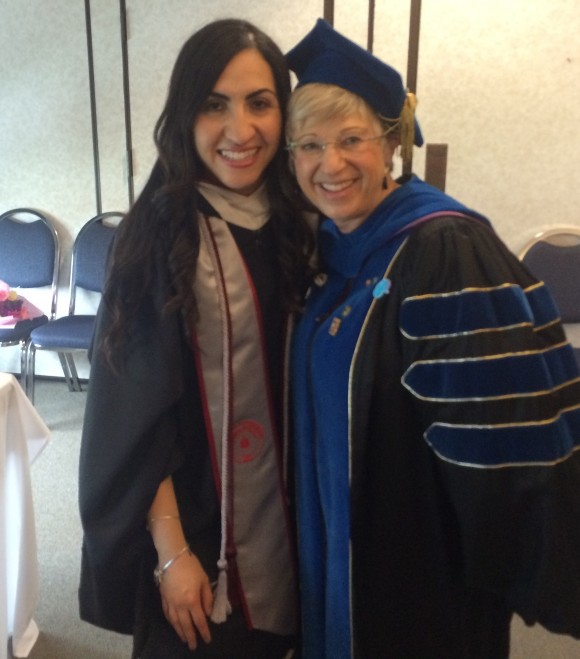
Deena Fam (’15 M.S.) with Judy Montgomery, Ph.D., during May commencement ceremonies for the Communication Sciences and Disorders Program. Fam completes her degree in July.
Then from behind her came another driver who, distracted by texting, failed to see the red light and crashed into her car. Fam’s airbag didn’t deploy and her head slammed into the steering wheel.
“I just remember being so shaken up,” Fam says. “I was kind of unsure of what happened.”
What happened was that Fam suffered a concussion. She thought she was fine and tried to forge ahead with her busy life, but soon she had to sideline it all for the kind of careful recovery concussion requires.
She lost six weeks of class in her fall 2014 semester, was forced to avoid computer screens, phone texting and reading. Frustrated and bored, she wondered how she’d ever catch up. But this July, thanks to help from family, professors and classmates, Fam will complete her master’s degree. And despite her setbacks, she was selected to receive the program’s Liz Wallace Perpetual Award and Scholarship, given to a student who exhibits outstanding leadership, ethics and academics.
“Deena is leading again with passion and conviction, providing an example for all of us,” says Judy Montgomery, Ph.D., professor and director of the program.
Today in her clinical fellowship as a medical speech language pathologist at Mission Hospital in Mission Viejo, Fam is on the front line of concussion treatment. Among her tasks is to perform cognitive evaluations and concussion assessments for patients admitted through the emergency room. Her experience with concussion is a silver lining she appreciates.
“It has given me this new perspective on how to deal with people who’ve had concussions. Now when I see people saying they’re OK after a car accident, I really know exactly what to say to them,” she says. “It was definitely a frustrating process, but kind of a blessing in disguise, I must say.”
How to spot possible concussion
Concussion symptoms can show up within minutes or days of the injury. Anyone who shows one or more of these symptoms after a head injury should seek medical attention.
Concussion symptoms observed by others:
• Can’t recall events prior to or after a hit or fall.
• Appears dazed or stunned.
• Forgets an instruction, is confused about an assignment, position, or is unsure of the game, score, or opponent.
• Moves clumsily.
• Answers questions slowly.
• Loses consciousness (even briefly).
• Shows mood, behavior, or personality changes.
Concussion symptoms reported by patient:
• Headache or “pressure” in head.
• Nausea or vomiting.
• Balance problems or dizziness, or double or blurry vision.
• Bothered by light or noise.
• Feeling sluggish, hazy, foggy, or groggy.
• Confusion, or concentration or memory problems.
• Just not “feeling right,” or “feeling down.”
Source: HEADS UP, a concussion education program developed by the Centers for Disease Control.
Like many people who suffer concussions without other apparent injury, Fam insisted she was fine after the accident. But by the next day she was overwhelmed with symptoms of fatigue, light sensitivity, vomiting and lack of focus. The only answer was to rest and cut back on sensory activities.
“It’s really hard to take a break from life and put your phone down and not watch TV and sit in the dark,” she says.
Her recovery from a diagnosis of post-concussive syndrome was slow, delayed she believes because she didn’t go into rest mode in the first 48 hours after the concussion. Gradually she returned to her studies, first with friends and family members reading aloud just a few paragraphs at a stretch. Classmates in her cohort in the Communication Sciences and Disorders Program pitched in. Her husband, a CPA, read more than his share of her coursework.
“I always kid around and say I think he should get the master’s degree instead of me,” she says with a smile.
But she’s serious about crediting her recovery to all that help.
“I had my professors’ support, my family’s support and my cohort’s support. Everyone was behind me,” she says. “There was so much love around me and I took that and I let it push me to my ultimate goal of graduating.”
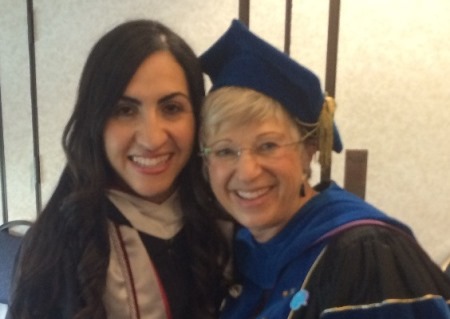
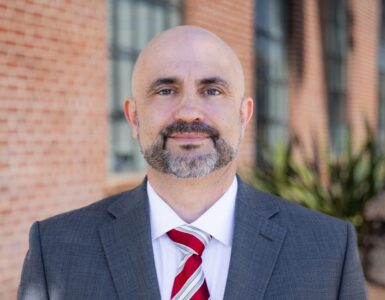
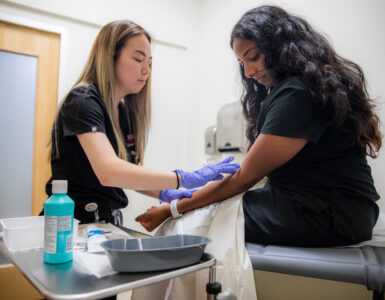
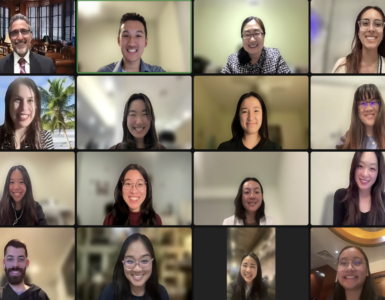

Add comment